Member’s Mark™

Who we are.
The Member’s Mark™ brand is made up of an exclusive set of items at Sam’s Club dedicated to elevating the everyday. Innovative products are carefully crafted with the belief that high quality can come at a great price.

Elevated products.
Every detail is carefully considered to deliver the best quality to members, without wavering on a commitment to low prices.
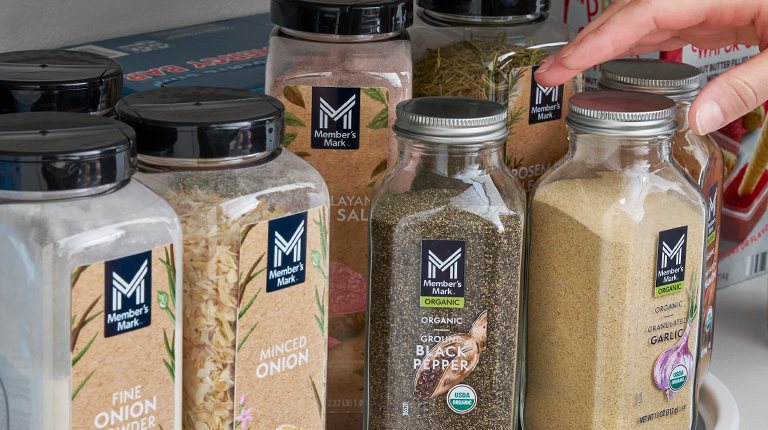
Better choices.
Member’s Mark™ products are evolving to deliver elevated ingredients and materials to members while also striving to reduce the impact on the planet.
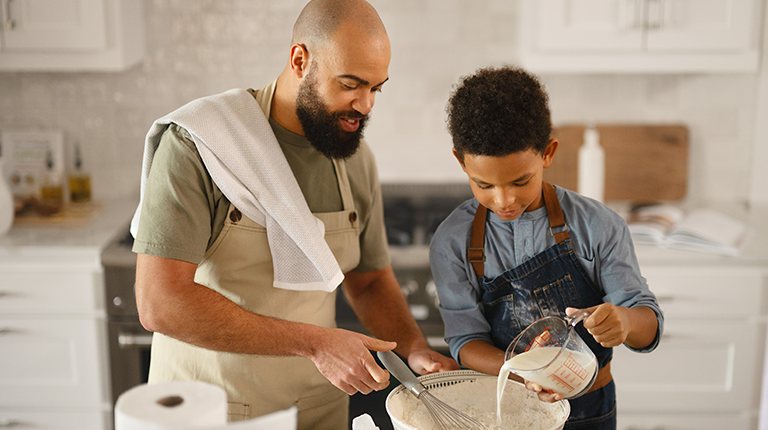
Deeper connections.
Products and partnerships are developed to enhance everyday moments with friends, family and community.
Our commitments.
In 2020, Walmart committed to becoming a regenerative company—which means placing nature and humanity at the center of our business practices. This commitment guided Sam’s Club to get to work to evolve our Member’s Mark™ private brand to become a purpose-driven brand that focuses on regeneration, quality and innovation. Regeneration means we aim to improve outcomes for people and the planet. We know it’s imperative that we make a difference. While we may not have all the solutions plotted out today, that doesn’t mean we can’t find solutions tomorrow to help us achieve our goals along this journey to becoming a regenerative brand focused on promoting animal welfare, helping support land and ocean health, mitigating deforestation, utilizing more sustainable textiles, and sourcing from renewable resources. In tandem with our focus on climate, we are also actively looking at ways to decrease our emissions footprint, incorporate more recyclable, reusable, and industrially compostable components in both our Member’s Mark™ products and packaging and continue to source responsibly and create inclusive economic opportunities by seeking diverse suppliers over the years. That’s why we’ve introduced a set of industry-leading sustainability goals that we aim to achieve for all Member’s Mark™ products by 2025.

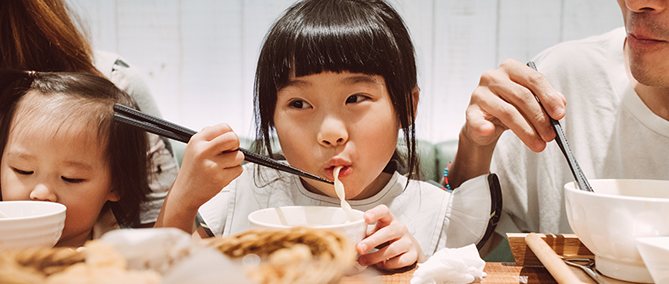

Made without.
Shop NowWe aspire for 100% of our products to be free from ingredients on our "made without" list by 2025.
These are the ingredients that we’re striving to remove or replace as we continue developing Member’s Mark™ products. As we continue to listen to our members, we recognize that this list may change.
- Acesulfame-K (Acesulfame Potassium)(Ace-K)
- Acetylated Ester of Mono & Diglycerides(ACETEM)
-
Artificial Flavors
*We aspire to achieve this goal by 2025 - Aspartame
- Azodicarbonamide, ADA
- Benzyl Alcohol
- Butylated hydroxy anisole (BHA)
- Butylated Hydroxytoluene (BHT)
- Butylparaben
- Certified Synthetic Colors/FD&C Colors
*We aspire to achieve this goal by 2025 - Cocamide DEA
- Cyclamates
- Cyclopentasiloxane
- Cyclotetrasiloxane
- Dioctyl Sodium Sulfosuccinate (DSS)
- DMDM Hydantoin
- Ethyl Vanillin
- Formaldehyde
- Hexa, Hepta, Octa Esters of Sucrose
- High Fructose Corn Syrup
- Lactylated Esters of Mono & Diglycerides (OLEON)
- Methylparaben
- Neotame
- Phthalates
- Potassium Bisulfate
- Potassium Bisulfite
- Potassium Nitrate/Nitrite
- Propyl Gallate
- Propylparaben
- Saccharin (All)
- Simplesse®
- Sodium Ferrocyanide
- Sodium Propionate
- Sucroglycerides
- Sucrose Polyester
- Talc
- Tertiary Butylhydroquinone (TBHQ)
*Except for our 35 pound food service frying oils - Toluene

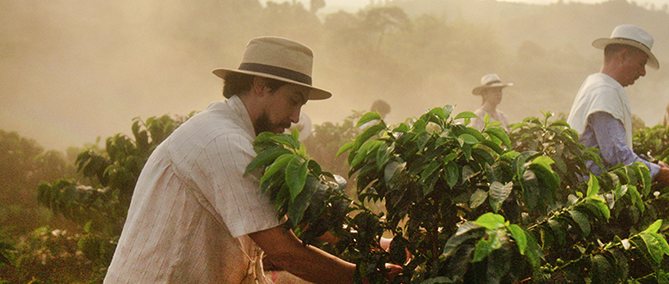

Fair Trade USA Certified™ or Rainforest Alliance Certified coffee, tea, and cocoa.
We aim to source 100% of our Member’s Mark™ coffee, tea, and cocoa as Fair Trade USA Certified or Rainforest Alliance certified by 2025.
These certification standards ensure that the coffee, tea, and cocoa used in all Member’s Mark products are grown more sustainably, supporting farmers who are looking after their workers and our natural resources.
Our certified crops are purchased from farmers and producers by our supplier partners. By bringing diverse allies together, the Rainforest Alliance protects forests, improves the livelihoods of farmers and forest communities, promotes their human rights, and helps them mitigate and adapt to the climate crisis in bold and effective ways.
Fair Trade Certification ensures that the coffee, tea, and cocoa used in all Member’s Mark products are sourced ethically, providing fair wages and utilizing sustainable practices designed to benefit the workers and the environments where these items are grown and produced. The profits then go directly to these local producers providing the opportunity to invest back in their farms and communities.

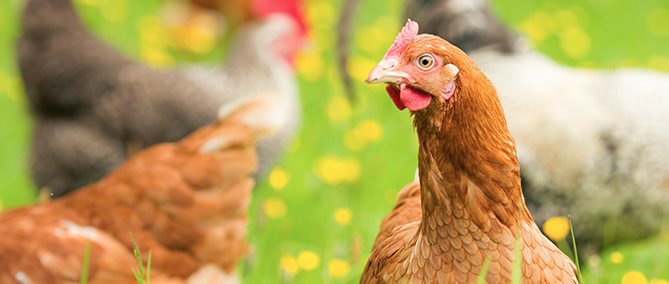

Animal Welfare & Antibiotic Use.
Our goal is for 100% of Member’s Mark animal proteins be sourced to meet our Animal Welfare and Antibiotic Use guidelines by 2025.1
We’re asking Sam’s Club® U.S. fresh and frozen meat, deli, dairy, and egg suppliers to:
- Report to authorities and take appropriate disciplinary and corrective action in any cases of animal abuse.
- Adopt and implement the principles of the Five Freedoms in their own operations and industry producer programs and publish a corporate policy on animal welfare.
- Find and implement solutions to address animal welfare concerns including, but not limited to:
- Housing systems that lack sufficient space, enrichment or socialization (for example, sow gestation creates, hen battery cages, and veal crates).
- Painful procedures where avoidable or without pain management (for example, tail docking, de-horning and castration).
- Euthanasia or slaughter without rendering an animal insensible to pain.2
- Promote transparency by providing an animal welfare report to Walmart® and publicly reporting against their animal welfare policy on an annual basis.
Antibiotic Use – Poultry Specific
We aspire to only offer poultry products raised with No Antibiotics Ever.3
Because of our commitment to animal welfare, if animals become ill, we want them to be treated and that may involve receiving antibiotics. We do not use the birds in any of our Member’s Mark products.
Antibiotic Use – Excluding Poultry
We recognize that antibiotics are one of the many tools used to keep animals healthy and that they should be used responsibly to preserve their effectiveness in humans and veterinary medicine. We believe in disease prevention strategies, appropriate veterinary oversight, accurate record-keeping, and careful review before antibiotic use. We also believe that antibiotics should only be used for medical purposes and not for growth promotion.
What we are asking our suppliers to do:
- Comply with all federal, state, and local regulatory requirements as well as our food safety standards.
- Adopt and implement the American Veterinary Medical Association Judicious Use Principles of Antimicrobials4 in their own operations and in their industry producer programs, including but not limited to:
- Implement disease prevention strategies.
- Have appropriate veterinary oversight.
- Maintain accurate records of treatments and outcomes.
- Careful review before antibiotics are used.
- Limit medical antibiotic use to ill or at-risk animals.
- Adopt and implement U.S. Food and Drug Administration’s Voluntary Guidance for Industry #2095 (Judicious Use of Medically Important Antimicrobial Drugs) in their own operations and in their industry producer programs, including elimination of growth promotion uses of medically important antibiotics.
- Eliminate growth promotion uses of all antibiotics.
- Promote transparency by creating an antibiotics management report and publicly reporting antibiotic use on an annual basis.
1Including USDA/FDA regulated products for human consumption only, excluding pet food products.
2Except where prohibited by dietary restriction.
3Excludes pet food products.
4AVMA Judicious Therapeutic Use of Antimicrobials. https://www.avma.org/KB/Policies/Pages/Judicious-Therapeutic-Use-of-Antimicrobials.aspx
5FDA Guidance for Industry #209: The Judicious Use of Medically Important Antimicrobial Drugs in Food-Producing Animals.
Accessed May 6, 2015.

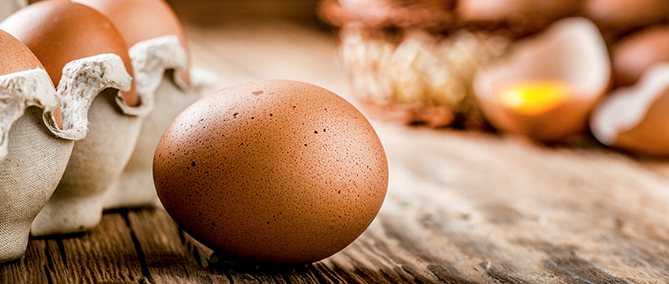

Cage Free Eggs
We aim to source 100% of all Member’s Mark shell egg products in Sam’s Club U.S. to be from cage-free laying hens.6
Cage Free
In support of our goal, we are pursuing the following animal welfare priorities for laying hens:
- We will require that 100% of our shell egg supply meets the standards outlined by the United Egg Producers (UEP) Animal Husbandry Guidelines or an equivalent standard. This means that regardless of the production system, every egg we offer is certified fully compliant. This includes, but is not limited to:
- Only non-feed withdrawal molt methods permitted. This means our hens are never subjected to the stress of feed withdrawal during molting to ensure their health and comfort.
- Adherence to guidelines on beak trimming and euthanasia
- Requirements for cage-free systems, as applicable, including:
- An enriched environment including nests and litter
- Minimum space of 1.0 square foot per hen
- Annual third-party audit to be conducted by USDA/AMS or Validus (as approved by UEP)
- We are challenging our suppliers to use selective breeding, innovation, and best management practices to improve the health and welfare of laying hens. This includes improving mortality rates and reducing painful procedures like beak trimming. We track continuous improvement against these metrics as part of our Sustainability Index.
6Egg products only include shell egg products. Subject to regulatory changes and based on available supply, affordability, and member demand.

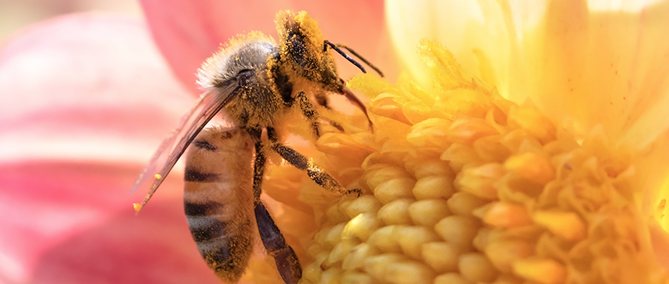

Pollinator Sustainability: Produce, floral.
We aim to source 100% of Member’s Mark fresh and frozen produce and floral from suppliers that have adopted Integrated Pest Management (IPM) practices by 20257. We also encourage the protection or establishment of pollinator habitats on 3% of land owned, operated, or invested in by suppliers by 2025.
IPM is a science-based, decision-making process that combines biological, cultural, physical, and chemical tools to identify, manage, and reduce risk from pests and pest management tools and strategies in a way that minimizes overall economic, health, and environmental risks, as defined by the IPM Institute of North America.
Through this goal, we aim to help promote more flowering native and naturalized plants to provide food for beneficial insects (predators and parasitoids), and undisturbed egg-laying allowing these vital partners in our food supply to live and thrive.
We also encourage fresh produce suppliers to phase out use of chlorpyrifos and nitroguanidine neonicotinoids pesticides (where applicable unless mandated otherwise by law), and to avoid replacing them with other products with a Level I Bee Precaution Pesticide Rating.
To learn more about our policies, visit https://corporate.walmart.com/policies
7Excluding canned and dried fruit and vegetable products.

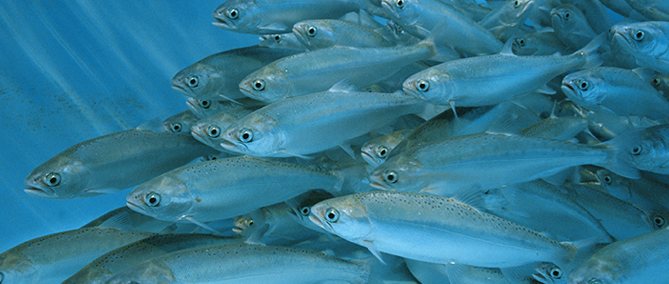

Seafood Sustainability.
We aim to source 100% of Member’s Mark seafood from farms and fisheries that have certifications recognized by the Global Sustainable Seafood Initiative (GSSI). For example, we source from the following GSSI certified programs including MSC (wild caught) or BAP 4 stars / ASC (farm-raised) by 2025, based on price, availability, quality, member demand, and unique regulatory environments across our global retail markets.8
Wild-caught or farm-raised, is there a difference?
Utilizing more sustainable fishing practices can help support fish populations and ensure healthier habitats for future generations.
Farm-raised seafood plays a vital role in helping conserve resources and meeting the increasing demand for seafood, while easing the strain on wild stocks and natural resources.
We aim for suppliers of Member’s Mark seafood to comply with the sustainability certifications approved by the Global Sustainable Seafood Initiative (GSSI). By 2025, we aim for 100% of our wild caught and farm raised fish to meet these standards.
https://www.ourgssi.org/gssi-recognized-certifcation/

To help simplify identification and clearly mark our more sustainably sourced items, we’ve created the Gold Standard badge to better find our more sustainable seafood products in-club and online.
8Including USDA/FDA regulated products for human consumption only, excluding pet food product.

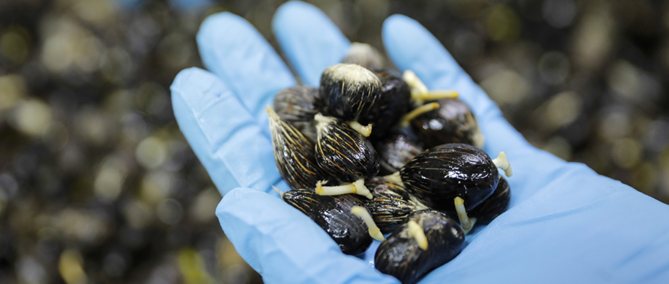

Responsibly Sourced Palm Oil.
Palm oil is a major ingredient in food and consumer products globally. To help support a wide range of social, environmental, and economic benefits, Sam’s Club is striving to source only deforestation-free and conversion-free (DCF) palm oil for our Member’s Mark™ products by the end of 2025 in accordance with our Forests Policy.

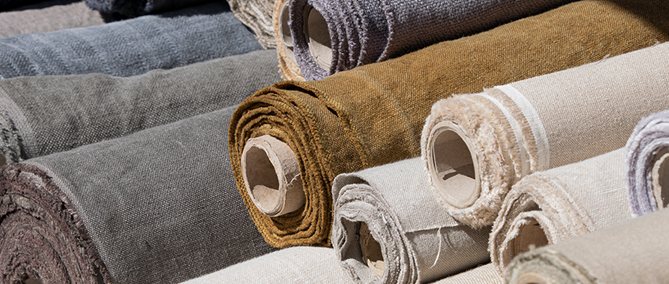

Textile Sustainability.
For the following commodities in Member’s Mark home and textile products–like clothing, bedding and towels–we aspire to source 100% “more sustainable cotton,” 50% recycled polyester, and 100% manmade cellulosic fibers (MMCF) that are free of content derived from ancient or endangered forests or from endangered species’ habitats or other controversial sources, as defined by the nonprofit organization Canopy’s tools and reports by 2025.9
Textiles are materials essential to everyday life and we’re working to ensure that all Member’s Mark textile products meet sustainability standards for our members and the planet.
Cotton
“More sustainable cotton” is sourced from farms that are continuously improving the environmental and social performance of the fields where cotton is grown, including maximizing land use efficiency, improving soil health, carefully managing water and chemicals use, decreasing energy use and greenhouse gas emissions and promoting better working conditions. We will work with our suppliers to use cotton sources that align with our view of more sustainable cotton, like the Better Cotton™ Standard System, to measure progress with our goals. .
Sam’s Club is a proud member of Better Cotton because its mission aligns with our efforts to source more sustainable cotton. We source Better Cotton because the organization, through its implementing partners, trains cotton farmers to care for the environment and respect workers’ rights and wellbeing. Because Better Cotton is sourced via a mass balance system, it is not physically traceable to end products, however, Better Cotton Farmers benefit from the demand for Better Cotton. To learn more, please visit BetterCotton.org.
50% Recycled Polyester
As a global retailer, Sam’s Club aspires to help create a more circular economy, moving away from a take-make-dispose approach to one where resources are preserved in production, and the materials are ultimately recycled back into the economic stream. In support of this aspiration, Sam’s Club has set a goal to source 50% recycled polyester for Sam’s Club U.S. Member’s Mark private brand apparel and home textile products by 2025. By using more recycled materials, we aim to help limit waste, conserve resources, and reduce energy use in the production of our products.
100% Preferred MMCF
We’re working with suppliers to ensure the manmade cellulosic fibers ¬— including rayon/viscose, modal, lyocell, acetate and trademark versions sourced for Member’s Mark apparel and soft home textiles — are not derived from ancient and endangered forests or from endangered species habitats or other controversial sources (as indicated by “green shirt” ranking by the non-profit organization Canopy’s Hot Button Report) by 2025..
9For more information and definitions go to Canopy Tools and Resources.



Responsibly Sourced Pulp, Paper, and Timber
We aspire to source 100% of the pulp, paper, and timber in all Member’s Mark products from areas that are free from deforestation and conversion (creating products on lands converted from natural habitats) by the end of 2025.
To achieve this goal, we aim Member’s Mark suppliers to use recycled materials and Forest Stewardship Council (FSC) commodities whenever possible or to get the materials from places that are confirmed or verified to be free from deforestation or land conversion.
Learn more about our Forests Policy and our commitment to responsible sourcing of Member’s Mark products pulp, paper, and timber.

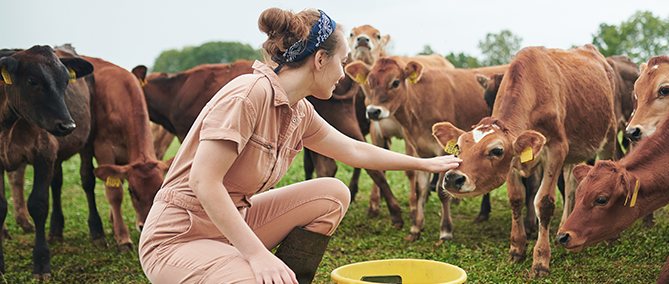

Best Feed & Grazing Management
We believe livestock grazing and beef production can be a part of a resilient, sustainable food system in the United States. It’s important because about 40% of the land in the U.S. is used for grazing that encompasses a wide range of ecosystems and wildlife. And pastures store a huge amount of soil carbon. With proper management, grazing can help secure clean water, enhance the habitat, sustain rural communities and even store additional carbon in the soil, which helps mitigate emissions.

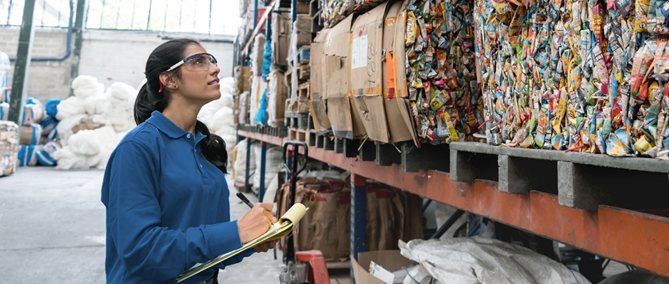

Packaging for the planet.
Our goal is for 100% of Member’s Mark packaging to be recyclable, reusable or industrially compostable by 2025 and have a 15% reduction in new plastics in packaging design by 2025.
Member’s Mark wants to move toward a more efficient system for all packaging, called a “circular economy.” This means taking steps to reuse and regenerate whenever possible, and collaborating with suppliers, our members and communities to achieve this goal.
We’re finding viable alternatives to plastic and working with suppliers to reduce or eliminate new plastic packaging when possible. Working with suppliers, we are also encouraging 100% recyclable, reusable, or compostable packaging by 2025.
Our goals go way beyond our members and the Member’s Mark brand. We also want to educate and inspire our members and communities to recycle. We are engaging with innovators to develop new packaging options, promote reuse, and expand recycling capabilities for our members and communities. We’re getting local governments to prioritize plastics recycling infrastructures. And we’re not in this alone, Member’s Mark is working with credible organizations to drive change and sharing our best practices and successes with the manufacturing community.
Learn more about the Sustainable Packaging Goals we’ve set globally, in North America and the U.S.